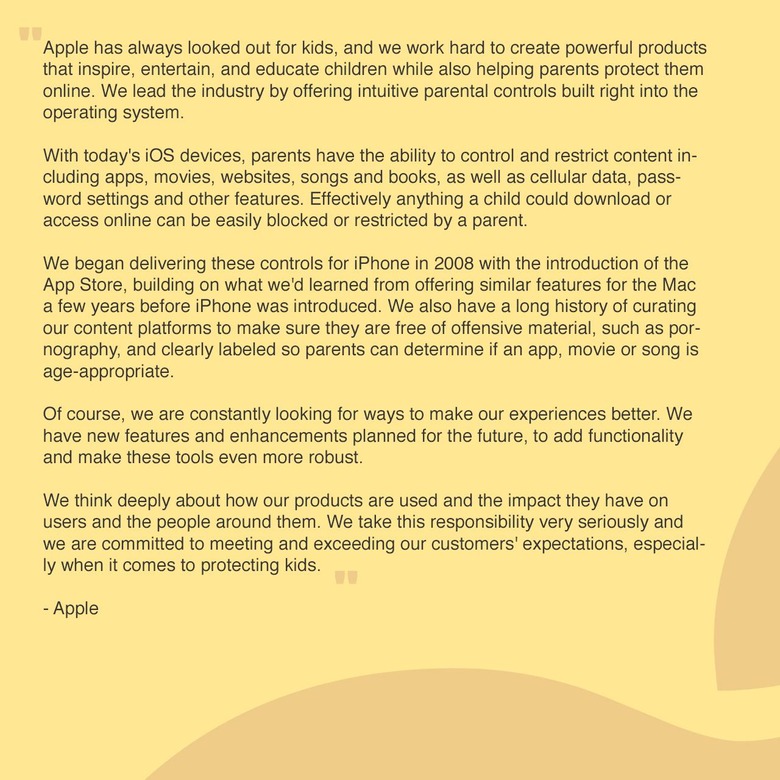Apple To Combat iPhone Addiction (For Kids)
Apple responded this week to a letter of concern from two major investors about smartphone addiction in children. The letter was dated January 6th, and came from the California State Teachers' Retirement System and investment management group Jana Partners LLC. The letter included the following: "we have reviewed the evidence and we believe there is a clear need for Apple to offer parents more choices and tools to help them ensure that young consumers are using your products in an optimal manner."
The full letter can be found at ThinkDifferentlyAboutKids dot com. There you'll find a litany of studies regarding the use of smartphones by young people, and the negative impact these devices are having. Not on their own, mind you, but in an unchecked manner. This has just as much to do with the kids as it does the parents as it does the schools as it does Apple – and all other smartphone manufacturers.

"Some may argue that the research is not definitive, that other factors are also at work, and that in any case parents must take ultimate responsibility for their children," said the letter. "These statements are undoubtedly true, but they also miss the point." The massive amount of time a child today spends on a smartphone is undoubtedly having an effect on how they grow and how their brain develops.
A spokesperson from Apple responded to the letter of concern with a statement late Monday with Bloomberg. "Apple has always looked out for kids, and we work hard to create powerful products that inspire, entertain, and educate children while also helping parents protect them online," said an Apple spokeswoman. The full statement can be found below:

Apple has several options right now. They could continue to operate with the tools they've given parents already, and nothing more. That'd do some good to some kids, but for the vast majority of smartphone-owning kids, change comes device-deep.
Maybe there's nothing Apple can do. Our society took in televisions and computers and continued to function. But with the level of life consumed an iPhone (or any other smartphone) delivers, this era of screen-wielding technology is different. This time, we might have to treat the device as a vice to overcome, rather than something for which there is no cure.
Apple's statement above includes confirmation that they "have new features and enhancements planned for the future, to add functionality and make these [parental control] tools even more robust." Cross your fingers Apple knows what to do – because it would certainly seem that we don't. Maybe they should just call up the Wu-Tang clan, since Wu-Tang is for the children.
OF NOTE: If you're old enough to drive, you're old enough to know when you're on your iPhone too much. The same goes for Android devices and whatever other mobile smart miniature computer you might have in your pocket or hand right now. This particular situation seems to be concerned primarily with children – tiny adults who don't know better in most situations.
